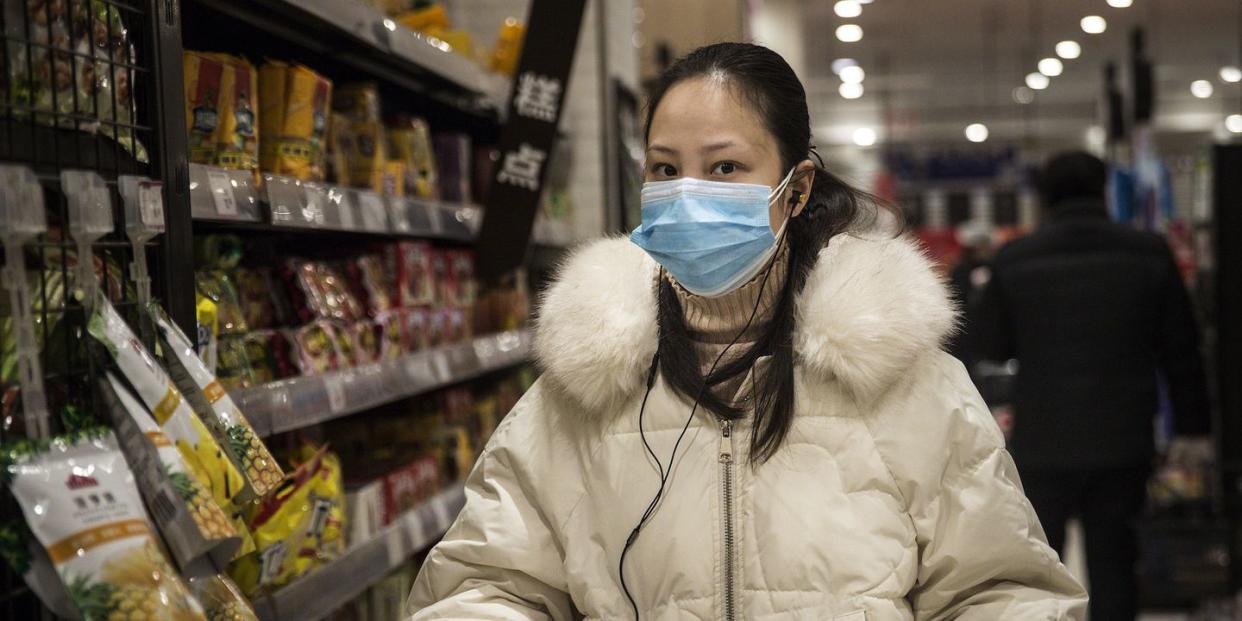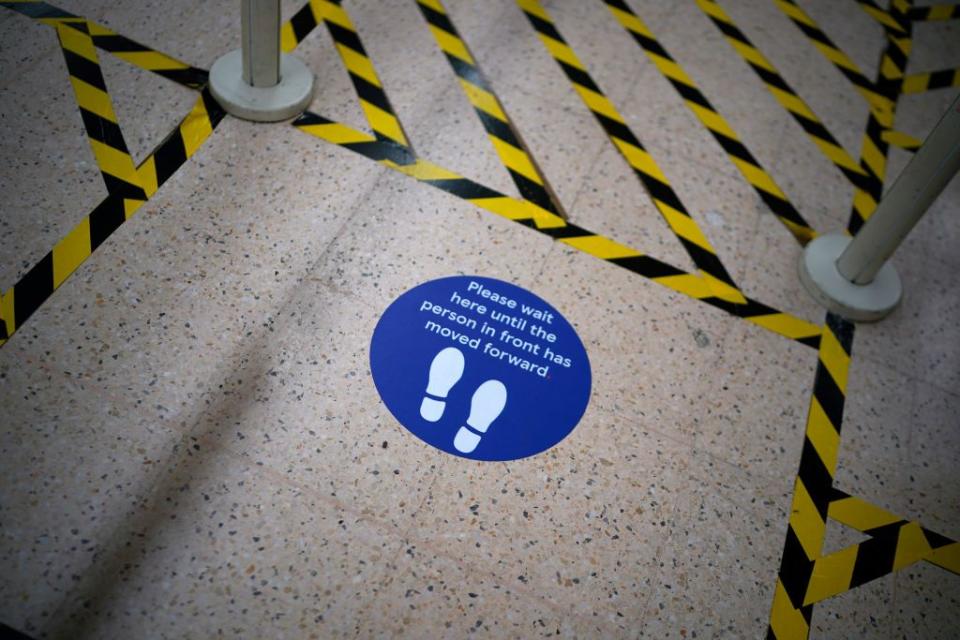How To Protect Yourself At The Supermarket During Coronavirus

With people still advised to stay at home in the UK to reduce the spread of coronavirus, more expert advice has been issued on how to shop safely at supermarkets.
These new guidelines tell shoppers what they should do before, during and after their trip to the supermarket in order to minimise their risk of contracting Covid-19.
They explain that touching trolleys, goods and standing too close to other shoppers could result in the spread of the virus and urge continued use of hand sanitiser, hand washing and wiping down surfaces and products before you put them away at home.
The Chartered Institute of Environmental Health (CIEH) has united with Environmental Health Association of Ireland (EHAI), and Irish Global Health Network (IGHN) to produce the new document.
It illustrates the measures to take before shopping, during the trip and at home afterwards.
They document clearly states that no reports of COVID-19 have been linked to contaminated food.
“The main risk to shoppers is coming into contact with an infected person. You are urged to wash your hands frequently, maintain good hygiene practices and minimise contact with people outside of your household,” the report states

So, they are asking the public to consider a few things before, during and after going to the supermarket or shop, such as:
Before shopping
Am I well enough to go shopping?
Do I need to shop today?
Could I manage without certain items and make do? For example, could I bake my own bread?
Can I go to quieter local shops or arrange with local shops for collection or deliveries?
Am I potentially vulnerable, and if so, could I ask someone else to shop for me?
Could I shop online?

During shopping
Try to avoid peak shopping times, although it may now be difficult to determine when these are.
Maintain a safe social distance of two metres from all other shoppers and staff
If you need to handle a basket or trolley, ask if it has been sanitised since last being used. If not, sanitise using either your own sanitiser or that provided by the store.
Sanitise your hands when you enter the store, ideally with your own sanitiser or, if available, that provided by the store. Avoid contact with surfaces as much as possible.
Don’t delay while shopping or chat with neighbours/friends/store staff.
After shopping
If shopping for a vulnerable person, leave the shopping on the doorstep, ring the bell or phone them and stand back while they collect it.
Wash your hands immediately when you return home.
Plan how you will deal with your shopping in advance of coming home.
Designate a cleared, disinfected area to sort out your shopping.
Prior to stocking your fridges and cupboards, wipe shelving with sanitiser and a paper towel, then discard.
Coronavirus can survive on hard surfaces, so wipe the outside of all canned/hard surface pack goods (tetra packs) with a paper towel/warm soapy water, sanitise (following the manufacturer’s guidance).
Alternatively, leave non-perishable foods in a safe place for 72 hours.
Remove outer food packaging and discard, being careful to limit handling of the inner packaging of items such as yoghurts.
Wipe down fridge and cupboard handles with sanitiser, a paper towel and discard.
Wash your hands again after you have unpacked and put your shopping bags away.
You can find the full document here.
The information in this story is accurate as of the publication date. While we are attempting to keep our content as up-to-date as possible, the situation surrounding the coronavirus pandemic continues to develop rapidly, so it's possible that some information and recommendations may have changed since publishing. For any concerns and latest advice, visit the World Health Organisation. If you're in the UK, the National Health Service can also provide useful information and support, while US users can contact the Center for Disease Control and Prevention.
You Might Also Like


